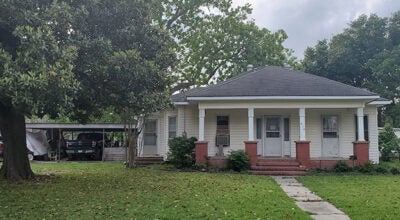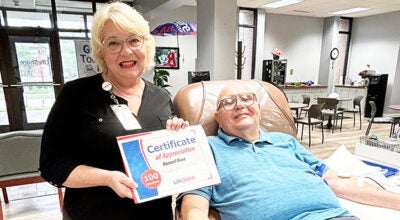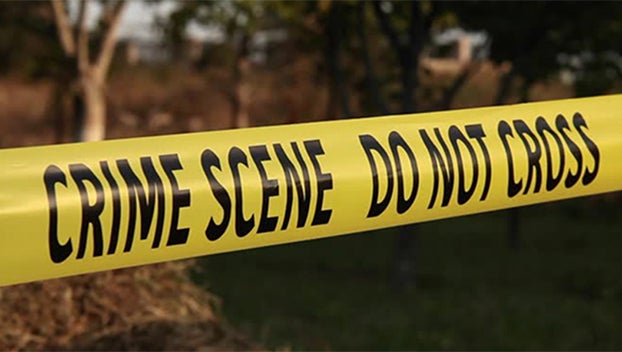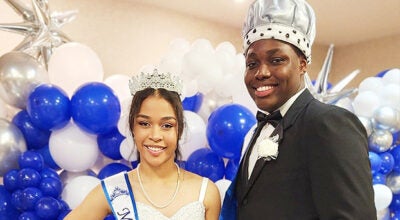Published 8:10 am Monday, October 8, 2018
“Nobody wants to hear that word. I had blocked it out in my mind. I had been praying, asking God that it would not be cancer. If it was, I prayed He would heal me.”
— Judith Smith
Director, Port Arthur Health Department
By Ken Stickney
Judith Smith had these perspectives to draw upon when she faced breast cancer in 2015 and for 18 months after that: She is a woman of health science and a woman of God.
Director of Port Arthur’s Public Health Department and a minister who completed a church-based doctoral program in theology during her treatment, she remembers receiving the cancer “verdict” at M.D. Anderson in 2015 with some equanimity.
“When you hear that, the things that go through you mind … What did I think? At nights I laid in bed and thought, ‘I cannot believe I have so much peace in this.’”
Her journey began in June 2015 during a routine mammogram, done about two months past due. She planned her annual visits strategically, she said. This time, she was told she also needed an ultrasound. After that, she said, she was told she needed a biopsy.
Smith said she’d had cysts before — they were always benign — but she headed to MD Anderson, the top-ranked cancer center, in League City, closer than the Houston campus. No one was saying much; the biopsy would determine if there was something there.
The diminutive Smith, a veteran administrator, said she’d suffered through panic attacks in the past. But not this time. She said the biopsy required not one but two efforts; the first time, the needle didn’t go far enough. When it did, she got the word: Cancer.
“Nobody wants to hear that word. I had blocked it out in my mind,” she said. “I had been praying, asking God that it would not be cancer. If it was, I prayed He would heal me.”
Family history
It wasn’t the first time Smith or the women in her family experienced cancer. Her maternal grandmother suffered through cancer at 75, but lived into her 80s. Her mother, a homemaker, had cancer and died while Smith was undergoing treatment. Smith’s sister, Dianne Marks, had a cancer diagnosis herself within a week. A co-worker also encountered a breast cancer diagnosis.
When MD Anderson told her the test results, she asked: Can I live to see my grandchildren?
“They were confident I could,” she said.
That meant she needed a plan not just to combat breast cancer, but to combat her specific breast cancer. She said doctors there meet and design such specific
plans for individual cancer cases rather than apply a “traditional treatment” often used in general.
Her plan included six months of chemotherapy, surgery in March 2016, radiation from April to early June.
Shared journey
Much as she credits her doctors for her recovery, there was more than medicine to her healing process, she said. There was family: husband Dallas, who is retired; a son, a school administrator; and her daughter, a college recruiter, all of whom she spoke with often.
Important, too, was that she and her lone, older sibling, Dianne, also a nurse, shared the breast cancer journey.
“It’s not unusual for sisters to both have breast cancer,” Smith said. “But at the same time?”
Marks took her treatment at MD Anderson’s main campus in Houston; Smith, at League City.
“Our cancers were totally different, our treatment was different,” Smith said. “But it was something we went through together.”
Smith and Marks, both of whom have daughters, were tested genetically to see if their cancers might pass on to the girls. To their relief, they did not carry that gene.
Although their cancers differed, they shared with each other aspects of their situation and their disease and treatment: symptoms, care, what to look for, what to expect. Smith took chemo first while her sister’s plan, also developed with MD Anderson doctors, involved a trial study of oral medication, surgery, then radiation.
“I chose a lumpectomy,” she said, after her medical team assured her the risk of the cancer returning was no worse than if she had had “a full mastectomy.”
Family concerns
Smith and Marks are similar in appearance, just 14 months apart. Marks was in Lamar’s first bachelor’s degree in nursing program; Smith graduated in the second.
Both pursued careers in public nursing — Smith, for more than three decades; Marks, for more than dozen years before she turned to teaching at Port Arthur Memorial High’s health program. They grew up in Beaumont; both married Port Arthur men.
“Everyone always got us mixed up,” Marks said.
“I was able to share things with her,” Smith said. “We were able to support each other.”
They also had to tend to their mother, whose own cancer worsened. In early 2016, their mother died.
Unusual, though, for a woman steeped in health care — Smith has 35 years in the public health field — was the faith in God that served as the basis for her outlook.
Smith said she prayed with her pastors, Yoshi Alexander and Glen Alexander, of Ruach Ministries off Gulfway.
“They were my support,” Smith said. “They prayed and were there with me. I couldn’t have made it without them.”
Healing touch
She held so much confidence in prayer and in God’s healing touch, she said, that she opted to seek less medical information, not more, about her condition and treatment. To this day, she said, she doesn’t know nor care to know at what stage her cancer was. She said she had faith in God and the medical team.
In fact, she said, she asked few medical questions. Her husband, Dallas, asked more questions than she did.
MD Anderson allows patients lots of access to their own medical records of treatment, but Smith, in general, chose not to seek it.
“I’ve never read my records,” she said. “When you start reading what’s going on in your body it makes you anxious. It creates more ‘what ifs’: What if it doesn’t work? What if it comes back?
“I chose not to read it. I truly believed I would be healed, I didn’t want it to be mixed up with my medical records. I had faith in God and in my physicians.”
Despite her illness, she continued to work and continued to study, pursuing the doctorate granted by the church college, then called the Lord’s Outreach School of Theology. In her office, she keeps a photo of herself and her husband’s receiving diplomas. Her academic focus was on scripture and she teaches that now at night.
Walk in faith
“I’ve always had strong faith. That’s how we were raised, with my mom and dad.
“So much of my father lives in me. My dad was such a strong man of faith. When we were children my mom and dad brought us to church every Sunday,” she said.
In January, 2017, she got the “all clear” from her medical team. Her journey had turned for the better.
“Every day I’m just so grateful. It has been a humbling experience. So much depended upon faith and those who God sends your way,” she said.
They included her family, her medical team, her staff of 35 at work, including a colleague who also faced breast cancer.
“It changes the way you think. Here you are: You don’t know whether you are going to live or die.
“I really see things differently now. At the end of the treatment, if it was to be a test for me, I really want to have passed it,” she said.
As part of her religious experience, she said, she has encouraged others to face life’s trials with hope and courage,
“God reminded me about those words of encouragement. I had to ask, am I going to crumble under this or rise above it?”
Faith and medicine, she said, was a powerful combination.
“I believed I would be healed,” she said. “That was what helped me persevere. I believed it would be healed.”





